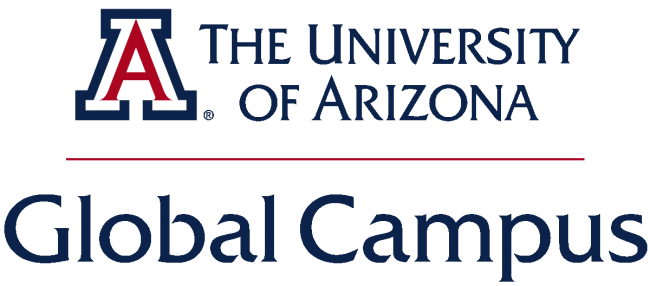You have /5 articles left.
Sign up for a free account or log in.

The University of Arizona Global Campus is facing pressure on multiple fronts.
UAGC
More than a year after the University of Arizona acquired Ashford University, a for-profit institution with a long and checkered history of allegedly deceiving prospective students and graduating a relatively small number of them, the accreditor for the merged entity, known as the University of Arizona Global Campus, is poised to announce investigative findings—including potential sanctions.
The Western Association of Schools and Colleges Senior College and University Commission sent UAGC a letter in July warning UAGC that the accreditor “has strong concerns that the targets set for academic improvement are seriously inadequate to reach levels of student outcomes that should be expected at an accredited institution.”
WSCUC placed Ashford University, the earlier iteration of UAGC, under a notice of concern in 2019, citing “longstanding concerns” about poor student success metrics there. The University of Arizona acquired Ashford in late 2020 and rebranded it University of Arizona Global Campus.
Commission officials visited UAGC, which is headquartered in Chandler, Ariz., in December. The results of that visit will help inform the WSCUC decision on whether to remove the notice of concern, keep it in place or potentially sanction the institution, commission president Jamienne Studley said in an interview. She added that WSCUC is “closely monitoring this institution.”
Letter to the Editor
A reader has submitted
a response to this article.
You can view the letter here,
and find all our Letters to
the Editor here.
The commission’s looming decision comes at a fraught moment for the University of Arizona, where many faculty members remain incensed about the state’s flagship university partnering with a troubled for-profit university known for exceptionally poor student outcomes.
Ashford’s parent company, Zovio, is providing enrollment and marketing services to the University of Arizona in exchange for a 19.5 percent cut of tuition revenue across the first 15 years of the deal. The deal’s terms guarantee UAGC will receive at least $225 million in revenue over the same period, including $37.5 million that Zovio paid up-front.
The commission’s work is unfolding as Zovio fights a lawsuit filed by California attorney general Rob Bonta, who alleges the company misled students to get them to enroll and then used illegal debt collection practices when students couldn’t pay tuition bills. (A spokesperson for Zovio said the company added a debt-collection fee to overdue bills until 2012 but has since stopped the practice. The spokesperson said Zovio believes the practice complied with California law.) Closing arguments in that trial concluded last month, with a judge expected to decide the case in the coming months. Prosecutors are seeking $75 million in penalties, $25 million in restitution payments to students and an injunction against Zovio.
“Defendants’ misconduct has not ceased,” prosecutors told the judge at a hearing where they argued for the injunction. “Zovio is providing the same enrollment and marketing services for the newly named University of Arizona Global Campus.”
Zovio denies these allegations.
“We’re proud of the fact that we service an institution designed to cater to working adult students, students from underserved demographics, and students who are the first in their families to attend college,” a statement from Chief External Affairs Officer Vickie Schray said. “The AG’s outdated allegations do not reflect the values of Zovio or Ashford University. We have never systematically misled students and have always held employees accountable for any isolated violations of our polices.”
Zovio, a publicly traded company, is also facing mounting financial woes. Zovio’s then interim CEO, George Pernsteiner, told investors in October that poor results were partially attributable to the fact that “enrollment in our University Partner Group has remained pressured.”
The company’s stock price fell 73 percent, closing at $1.27 a share, in the 2021 fiscal year, according to market reports. In a call with investors last July, Zovio chief financial officer Kevin Royal said new enrollments at UAGC had declined by about 20 percent in the second quarter compared to the year prior.
UAGC spokeswoman Linda Robertson said 28,111 students are currently enrolled at the institution, but she declined to say whether new enrollments had increased or decreased in recent months.
Retention rates have improved. Robertson said the 2020 retention rate for all bachelor’s degree students was 38 percent, an increase of three percentage points over the 2019 rate, but still a low number compared to most institutions. According to the National Center for Education Statistics, in 2019 the average retention rate for all institutions was 68 percent.
While the University of Arizona has told faculty members that Zovio’s recruiting and enrollment methods would change under its ownership, prosecutors alleged at the trial that they have not. Early last year, after the University of Arizona’s partnership with Zovio launched, prosecutors say Emiko Abe, Zovio’s director of risk and corporate compliance, “raised concerns that high or excessive pressure could indicate predatory enrollment practices or lead to employees breaking rules to maintain their jobs.”
According to prosecutors, a Zovio HR manager told Abe, “I understand that pressure could lead to noncompliant behaviors, but I don’t think we will ever eliminate pressure and stress in the Enrollment Department.”
Prosecutors also said Pat Ogden, the former vice president of regulatory affairs at Ashford and, until May, at UAGC, testified that nothing had changed since the Ashford era.
“Zovio is providing the same enrollment and marketing services for the newly named University of Arizona Global Campus, what defendants’ witness Pat Ogden called the same institution under a different name,” prosecutors said.
Pam Scott, a spokeswoman for the University of Arizona, said via email that the university has “full confidence in UAGC’s current marketing and recruitment efforts.”
Many University of Arizona faculty members have long vocally opposed the deal with Zovio, saying that being associated with the company damages the university’s reputation.
“Ashford is a festering wound,” Leila Hudson, an associate professor and Faculty Senate member, said in an interview. “Ashford continues to be just a stain on the University of Arizona, particularly because what they did was to effectively sell the name, the trademark, and the reputation of the University of Arizona to this fly-by-night complex of predatory institutions with various names for, effectively, the grand sum of $17 million.”
Hudson said that while the University of Arizona administration initially told faculty it would get $37 million from the deal, ultimately legal fees and other expenses diluted the payout to about $17 million. University of Arizona faculty members recently weathered devastating furloughs, Hudson said, noting that none of the money Zovio paid the university was used to offset those. A university spokesperson agreed that the Zovio money was not used to offset furloughs but pointed out that university leaders also took furloughs and did so for longer than faculty members.
Hudson said many departments at the University of Arizona with young but thriving online programs are worried outsiders and prospective students will confuse their offerings with programs of “dubious quality” at UAGC. She said a friend who fundraises for the university overseas told her of conversations with donors in the Middle East in which the fundraiser was asked, “What the hell is this Ashford thing?”
“This is not a local matter,” Hudson said.
Scott, the university’s spokeswoman, said university leadership is “in full support of the University of Arizona Global Campus’s aim to broaden educational opportunities for students. Education enriches lives, and it is clear the UAGC leadership and Board of Directors are committed to providing students a high-quality online education in an increasingly digital age.”
Bob Shireman, director of higher education excellence at the Century Foundation, a think tank focused on economic, racial, and gender equity in education, health care, and work, has long tracked for-profit universities and online program managers. He said he is bewildered that an institution as highly regarded as the University of Arizona would partner with a company being sued for fraud by the California attorney general.
“One of the big questions is would the University of Arizona itself be making the same kinds of decisions about recruiting, about spending on instruction, about who’s qualified as a faculty members … as this arm’s-length contract company?” Shireman asked.
He said he believes leadership at the University of Arizona overlooked allegations made against Zovio and Ashford, including the California case, because they wanted to better compete with ASU Online, the respected online juggernaut run by nearby Arizona State University, also a public institution.
“I think they just got so excited about having their own big online unit when their fellow Arizona institution, Arizona State, has been eating their lunch in that regard, and they thought, ‘Hey, here’s our opportunity,’ and they jumped, it seems, without really thinking about what they were doing,” Shireman said. “They were fooling themselves about what they were buying.”
Before being rebranded as UAGC, Ashford University had been criticized for poor student outcomes. During the California trial, Stephanie Cellini, a labor economist and professor of public policy and economics at the Trachtenberg School of Public Policy and Public Administration at The George Washington University, testified that two years after graduation, average postcollege earnings for employed 2015 and 2016 associate’s degree graduates from Ashford’s College of Education were $20,030 per year, while bachelor’s degree candidates earned slightly more, at $26,759 per year.
Phil Hill, partner at MindWires Consulting and publisher of the Phil on Ed Tech blog, said the California case, and the broader difficulties UAGC is facing, could have significant implications for what has become a trend in which for-profit colleges with troubled records convert into nonprofit partners for state institutions that want to start online programs quickly. Examples include Kaplan University, which Purdue University bought for $1 to create Purdue Global, and the University of Arkansas, which bought the for-profit online university Grantham for the same price.
“This case will give a lot of ammunition that could make it much more difficult for future schools to rely on ‘instant global campuses’ … to quickly accelerate online efforts at traditional universities,” Hill said via email.
He said the California prosecution is also likely to lead to further mistrust between University of Arizona faculty members and university leaders.
“What the California attorney general’s office alleges is exactly what UA faculty groups were concerned about, yet leadership claimed that those problems were in the past,” Hill said.




